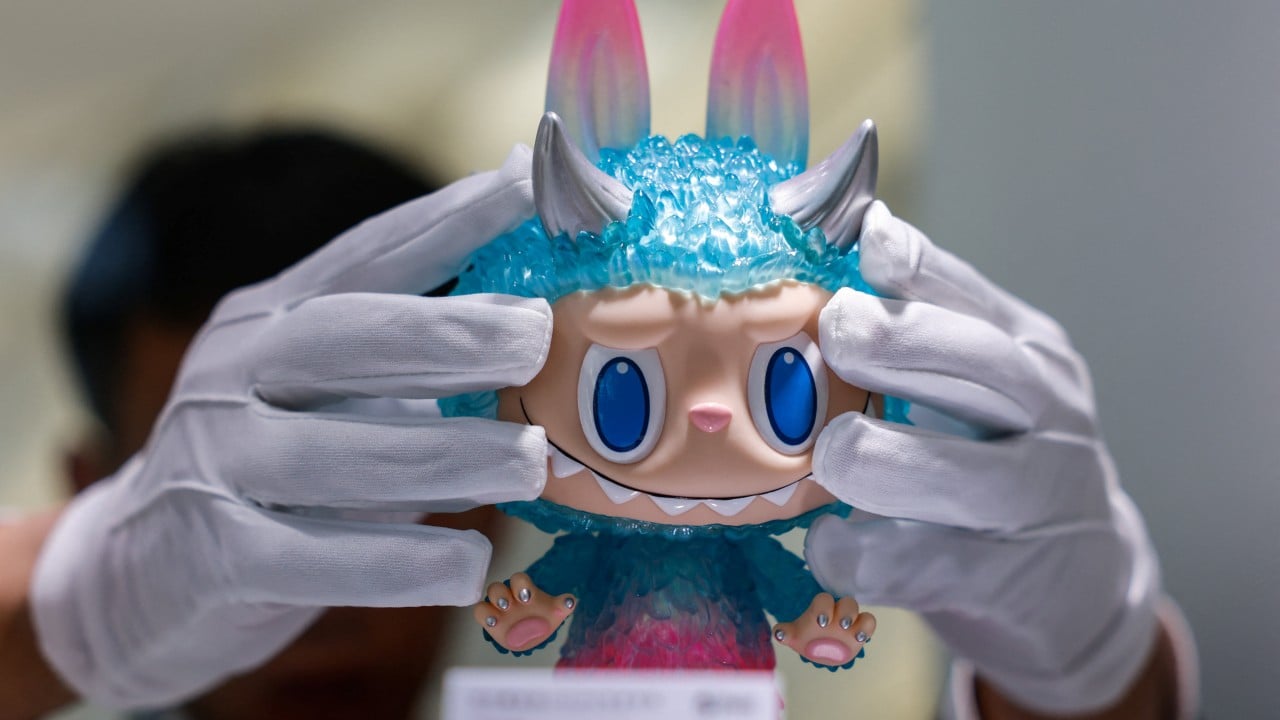As Chinese companies ponder how best to market their products internationally, the example set by Pop Mart – the Beijing-based brand behind the viral Labubu toy – has been praised by the country’s state media for the creativity that underlies its success.
Advertisement
The wide-mouthed, bug-eyed toy’s global fan base is evidence of a shift in priorities for China as it transforms from a producer of low-value goods to a hub of innovation, Qiushi, the Communist Party’s top theoretical journal, said in a commentary piece published on Wednesday.
With original Chinese intellectual property capturing global attention, the country, traditionally known as the world’s factory of low-end toys, “has cultivated a robust innovation ecosystem” and “is increasingly serving as a global incubator where seeds of creativity are sprouting everywhere”, the article said.
Pop Mart, which is listed in Hong Kong, collaborates with a range of artists and designers to produce toy characters including Molly and Dimoo. Labubu, its most popular product by far, was designed by Hong Kong–born artist Kasing Lung.
The company said its overseas and Hong Kong-Macau-Taiwan revenue rose 375 per cent last year to 5 billion yuan (US$695.5 million), accounting for nearly 40 per cent of its total revenue.
Advertisement
Likening Labubu’s success to other globally acclaimed Chinese products including the blockbuster video game Black Myth: Wukong and the animated film Ne Zha 2, the Qiushi commentary said: “Labubu’s popularity is a vivid testament to Chinese companies’ commitment to long-term innovation and the growing global recognition of Chinese creative products.”
The plush toy has been so popular that it has spawned a wave of counterfeit products, known as “Lafufu” – with the f standing for fake. On social media platforms such as YouTube, Instagram and TikTok, “How to tell a Labubu from a Lafufu?” has become a viral topic.

